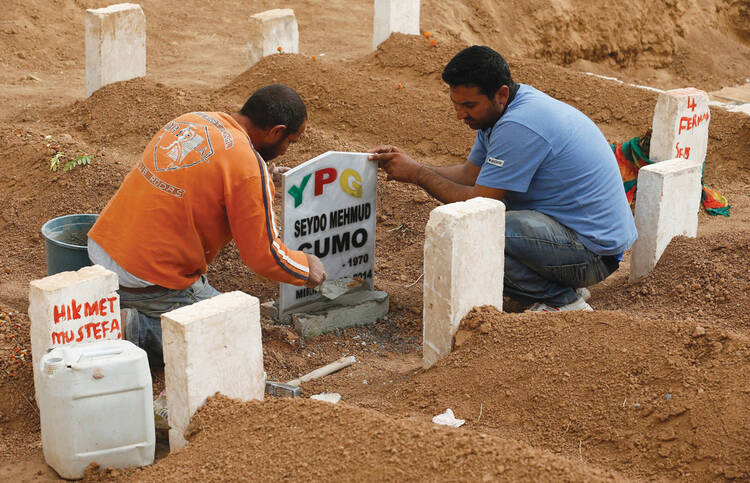“There is a need for immediate action similar to what took place in Kobani,” said Bassam Ishak, president of the Syriac National Council of Syria, urging coalition airstrikes to aid Christian and Kurdish fighters battling Islamic State militants on Feb. 26. • On Feb. 25 a Greek Orthodox seminary in Jerusalem was damaged by arson and “anti-Christian” graffiti were found at the scene of what Israeli police said could be a hate crime. • The Rev. Jean-Paul Kakule Kyalembera, a diocesan priest in Congo’s North Kivu province, was shot to death on Feb. 25 in an apparent attempted robbery. • The Federal Communications Commission’s vote on Feb. 26 to safeguard net neutrality was welcomed by Bishop John C. Wester of Salt Lake City, chairman of the U.S. bishops’ Committee on Communications, who called the Internet “a critical medium for religious speech,” since other media are “closed to noncommercial religious messages.” • Archbishop Allen H. Vigneron of Detroit led employees of the archdiocese into a new chancery building in downtown Detroit’s Capitol Park on Feb. 9. • The National Demographic Survey of American Jewish College Students, released in February, found that 54 percent of Jewish students experienced anti-Semitism on campus in the first six months of the academic year 2013/14.
News Briefs
Show Comments (
)
Comments are automatically closed two weeks after an article's initial publication. See our comments policy for more.
The latest from america
Latin Mass, Eucharistic Revival, real presence: In every age—including our own—the church has seen a complex Eucharistic landscape.
A Homily for the Eighteenth Sunday in Ordinary Time, by Father Terrance Klein
Acceptance of changing tides was a major theme at the recent Conference of Major Superiors of Men National Assembly.
Catholic digital content creators reflect on their experiences at the Vatican's first-ever Jubilee of Digital Missionaries and Catholic Influencers.








